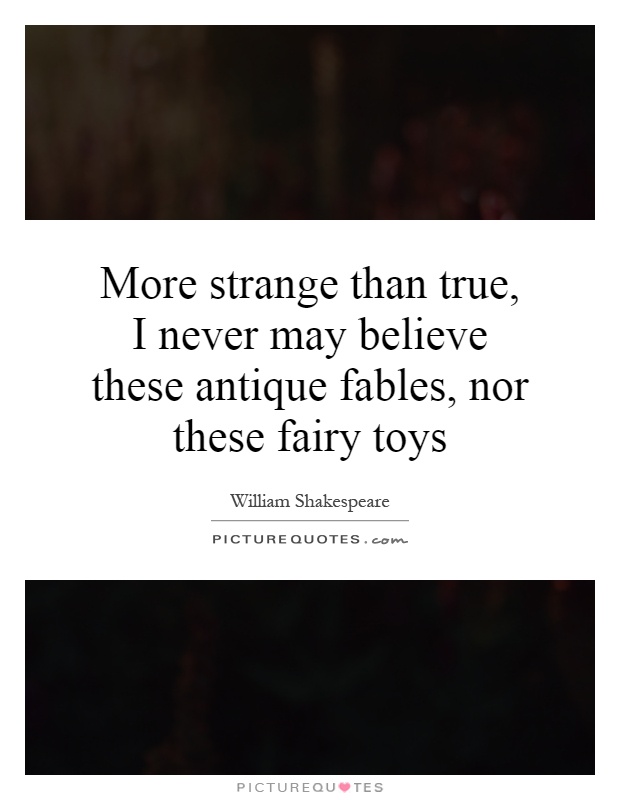More strange than true, I never may believe these antique fables, nor these fairy toys

More strange than true, I never may believe these antique fables, nor these fairy toys
In William Shakespeare's play "A Midsummer Night's Dream," the character Theseus utters the line, "More strange than true, I never may believe these antique fables, nor these fairy toys." This line reflects the skepticism and disbelief that Theseus feels towards the fantastical elements of the play, such as fairies, magic, and love potions.Shakespeare often used the theme of skepticism towards the supernatural in his works, as it allowed him to explore the tension between reason and imagination. In "A Midsummer Night's Dream," Theseus represents the voice of reason and logic, while the fairies and magical creatures represent the world of fantasy and imagination. Theseus's refusal to believe in the fairy world highlights the conflict between the rational mind and the irrational forces of nature.
The line also speaks to the idea of questioning traditional beliefs and myths. Theseus's rejection of "antique fables" suggests a desire to move beyond the constraints of the past and embrace a more rational and modern worldview. By expressing doubt towards fairy tales and myths, Theseus challenges the audience to think critically about the stories they have been told and to question the validity of ancient beliefs.
Furthermore, Theseus's skepticism towards fairy toys can be seen as a commentary on the nature of love and desire. In the play, the characters are often manipulated by the mischievous fairy Puck, who uses magic to create chaos and confusion. Theseus's refusal to believe in the power of love potions and enchantments suggests a skepticism towards the idea of love as something that can be controlled or manipulated.
Overall, Theseus's line in "A Midsummer Night's Dream" reflects Shakespeare's interest in exploring the tension between reason and imagination, as well as his skepticism towards traditional beliefs and myths. Through Theseus's character, Shakespeare challenges the audience to think critically about the stories they are told and to consider the limits of human understanding.












 Friendship Quotes
Friendship Quotes Love Quotes
Love Quotes Life Quotes
Life Quotes Funny Quotes
Funny Quotes Motivational Quotes
Motivational Quotes Inspirational Quotes
Inspirational Quotes